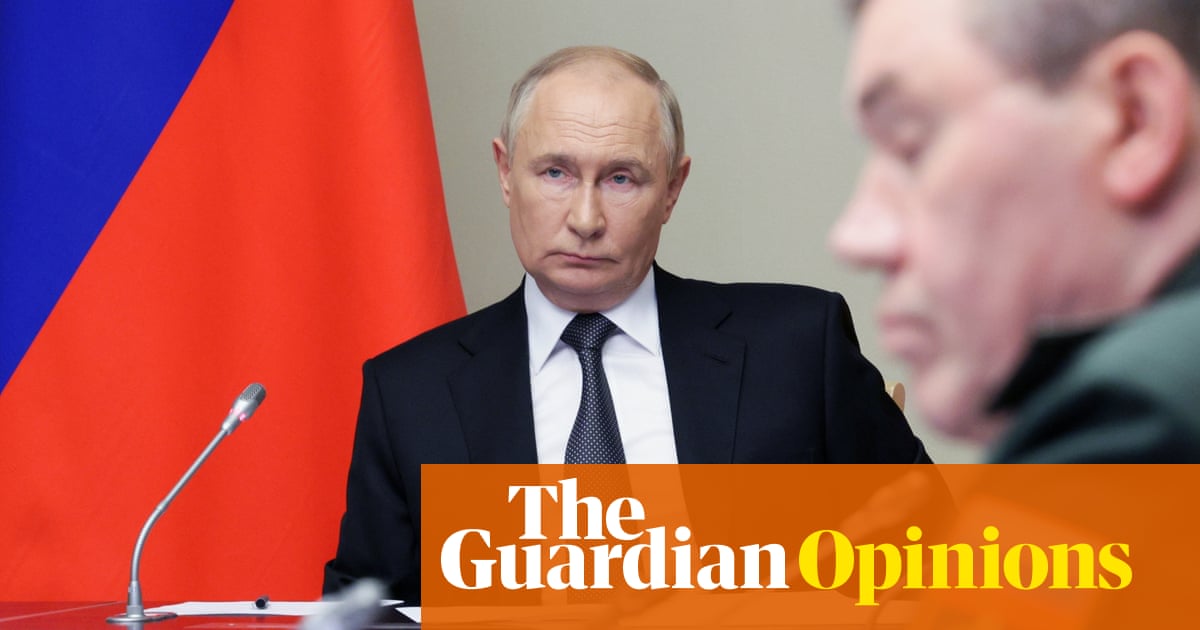On 6 August, a substantial Ukrainian force launched a cross-border incursion into Russia’s Kursk region, shelling the little town of Sudzha and reportedly occupying several villages. Scores of Russian military were killed by artillery and drone strikes, while others were seen surrendering to the triumphant Ukrainians. It quickly became apparent that the incursion was on a far larger scale than previous border raids. Two and a half years into Putin’s murderous invasion of Ukraine, Russia faced an unpleasant reality. It, too, could be invaded by a neighbour.
Ukraine’s Kursk operation overlaps with a poignant anniversary. Twenty-five years ago, Vladimir Putin – previously the director of the Russian security service (FSB) and the secretary of Russia’s security council – replaced the short-lived prime minister Sergei Stepashin.
Putin’s appointment on 9 August 1999 happened just two days after a group of Chechnya-based militants launched a bloody raid on neighbouring Dagestan. The cross-border incursion, led by the Chechen warlord Shamil Basayev and the Saudi jihadist Ibn al-Khattab, was purportedly aimed at bringing Dagestan under the flag of a new caliphate.
The Dagestan raid – followed by a series of apartment bombings that stunned the Russian public – gave Putin a justification to invade Chechnya and cement his grip on power. Putin, then 46, projected a gung-ho image of a man who could solve intractable problems. In September 1999, just as the Russians were bombing the Chechen capital of Grozny, Putin made his memorable promise to “beat the living hell out of [terrorists] even if we find them in the men’s room”.
For a time, that strongman aura lifted Putin’s popularity: he appeared firm and in control, in sharp contrast to Boris Yeltsin’s decrepitude. Riding this surge of public approval, Putin won easily in the March 2000 presidential election, entrenching his power.
Twenty-five years later, Putin still holds on to power with an iron grip, while Russia is oddly reliving the calamities of 1999-2000, only on a much greater scale. Putin has started another war, of which there is no end in sight. And now there has been an incursion into its own territory, with a more serious challenge to the regime than Basayev and Khattab’s band of ragtag fighters ever managed to muster.
The Russian authorities are facing uncomfortable questions from desperate local residents in Kursk. How could the “special military operation” that was “proceeding according to the plan” – according to the Kremlin’s repeated assurances – have gone so terribly wrong? Putin’s response has been underwhelming: the government promised 10,000-rouble (£90) handouts to those affected.
The Russian military has sent reinforcements to try to recapture the lost territory, and has been dropping guided bombs on its adversary in Kursk, which is to say: on Russia itself. Russia bombing Russia may seem like a peculiar idea, unless one recalls that this was how Putin began his reign: by brutally bombing Chechnya (then and now a part of Russia) into submission.
It is not yet clear what the Ukrainians are trying to achieve by invading the Kursk region. It may be that they are hoping to dig in and hold this territory in order to trade it for something else in later talks. It may also be that they are seeking to distract Moscow’s attention from Donbas, where the Russian army has made gains in recent weeks.
Or – and this is the most likely explanation – the Ukrainian government simply wanted to signal to its own people, and probably to the Russians, that Putin is nowhere close to victory in Ukraine and that he can’t even keep his own country secure.
Indeed, Russia’s embarrassing failure in Kursk comes in the wake of other recent humiliations, including, just over a year ago, Yevgeny Prigozhin’s abortive mutiny. Although Prigozhin backed down (and was later killed, likely after a direct order from above), his challenge to the commander-in-chief, and the ease with which he marched from Rostov-on-Don towards Moscow, exposed a debilitating weakness among the supposedly all-powerful siloviki (the security apparatus). No one marched to defend Putin’s regime against the mutineers.
In the months that followed, Putin had senior military officers arrested on charges of corruption, and replaced Prigozhin’s key detractor, the long-serving defence minister Sergei Shoigu, with a civilian technocrat. Prigozhin’s other detractor, the widely reviled and incompetent chief of the general staff Valery Gerasimov, remained in post. One would think that he would have to take responsibility for the incredibly embarrassing failure to pre-empt the invasion of Kursk. Only, in Putin’s rotten system, loyalty to the boss tends to rank higher than competence.
In August 2000, Putin met with the distraught family members of a separate Kursk catastrophe: a Russian submarine, K-141 Kursk, had sunk in the Barents Sea after an accidental torpedo explosion, killing all 118 sailors onboard. It was a very difficult, tumultuous meeting. People were shouting. Putin looked defensive. It was a period when the Russia media was still reasonably free and his sins were called out. Now, having shut down the free press, he is far beyond such sentimentalities. The tsar has grown distant from his tiresome subjects. After all these years in power, he knows that Russians’ meek resentment of their rulers doesn’t threaten him. And he has already killed and exiled those who posed any serious danger.
Still, the war continues, presently in Kursk. In the end, it has become just another flashpoint in a long, drawn-out struggle that has already devastated Ukraine, and is now coming back home to Russia to claim a bloody dividend. Putin wanted to beat the living hell out of Ukraine. Well, now, he too has learned that what goes around, comes around.
And so, 25 years on, Russia drifts uncertainly, sinking into darkness, mired in a war an ageing dictator wants desperately to win, but just doesn’t know how.

